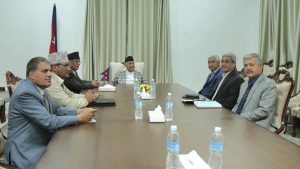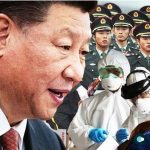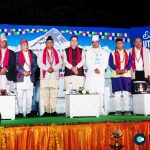
Nepali Politics: A Never-Ending Drama of Betrayals and Opportunism
Nepali politics seems like a never-ending drama filled with betrayals and opportunism. Until Sunday, Prime Minister Pushpa Kamal Dahal was in alliance with the Nepali Congress. During that time, democracy was derailed, the peace process was sabotaged, justice was delayed, and the country faced danger from reactionary forces. But ironically, over a year ago, Dahal himself changed his coalition, citing more or less the same reasons.
Last year, when KP Sharma Oli justified the dissolution of Parliament during a floor test for Dahal’s government, Dahal broke the coalition with Oli. He claimed that Oli had not changed his anti-democratic nature. Oli hasn’t shown any indication of altering his stance, but Dahal now seems to forget Oli’s misadventures.
Surprisingly, Nepali Congress leaders seem shocked and dismayed at Dahal’s change of coalition partners for no apparent reason. Dahal’s latest decision might have come hastily, but it was predictable considering his history of not committing to long-term relationships. Congress President Deuba is still shocked at how Dahal broke his trust, labeling him as ‘dhokhebaaj’ (deceiver). However, Deuba himself has faced accusations of betrayal in the past.
More than betrayal, the word that best describes Nepali politics today is ‘tamasha’ (spectacle). The ugly spectacle of government changes for trivial reasons has been ongoing for over a decade and a half in republican Nepal with no end in sight. The electoral system, combined with the lack of moral integrity among politicians, has fueled this vicious cycle of making and breaking governments. There’s no need for ideological alignment; self-serving interests are the only requirement. The mutual betrayals among the old establishment have turned politics into a zero-sum game.
Even the newcomers in the political scene, such as the Rastriya Swatantra Party (RSP) and the Janamat Party (JP), have joined the fray. Rabi Lamichhane’s “Mission-84” against the old forces has failed as he has joined them, and CK Raut of the JP is waiting for a position of power before making a decision. With every political party, old or new, changing its colors based on a common pursuit of power, Nepali politics continues to lack ethics.
In conclusion, Nepali politics remains entrenched in a cycle of betrayals and opportunism, with no sign of improvement on the horizon. It’s high time for politicians to prioritize the interests of the nation over their own personal gains and ambitions. Only then can Nepal truly progress towards a stable and prosperous future.













Comments